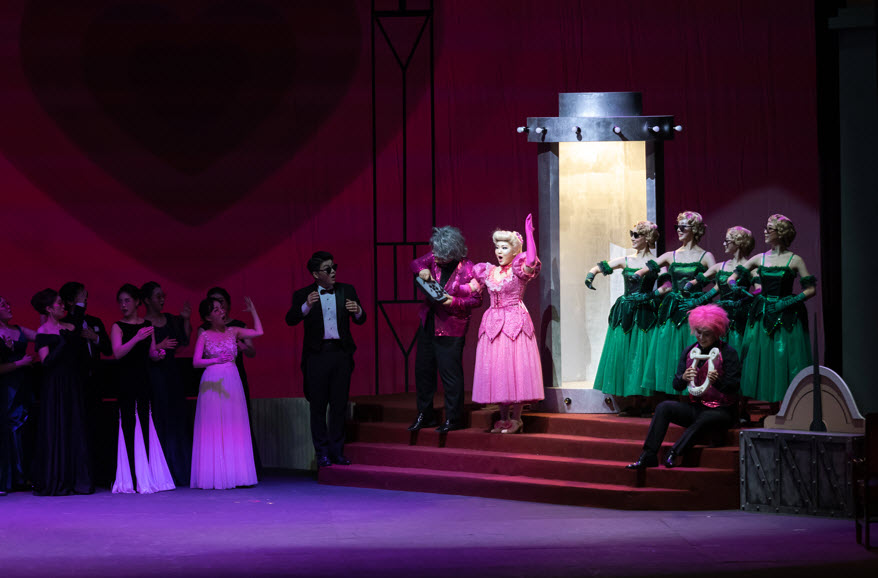The opera held biannually by the SNU College of Music came to an end after a four-day run from Oct. 27 to 30. This year, the opéra fantastique Les Contes d’Hoffmann (The Tales of Hoffmann) by Jaques Offenbach was performed in the Foursquare of Gwanak Campus. Hosted by the College of Music and supervised by the SNU Opera Research Institute, the show was special for its active integration of the student community, in both its cast and its audience.
The regular opera is a key event for the choir of the Department of Vocal Music. Workshops are held throughout the year to prepare for the event and to refine students’ vocal techniques. Students who are in their junior year and up, including graduate students, are eligible to audition for the main role. Participation in the ensemble choir is mandatory for freshman and sophomore students.

Sejin Park (Department of Vocal Music) who played Hoffman on the first opening night, spoke of how he had been surprised by the announcement of this year’s opera, having assumed that the event would be canceled due to COVID-19. Park only had one semester left before graduation, so his auditions were carried out during his military service. “It was, after all, my last chance to participate in a school opera.”
Les Contes d’Hoffmann is no easy piece, especially for students. Requiring numerous high notes and French diction, the leads went through tough training over the summer. “I can’t say I wasn’t worried about taking on such a piece,” Park said. “But the French diction classes and amazing coaching from music teachers helped a lot. It was difficult practicing with masks, though.” He went on to speak of the significance that this opportunity had had for him. “It was my first opera lead, and my first collaboration with the orchestra.”
The ensemble choir began practice later than the leads. “This year’s practice was especially hard for us,” said Eunsaem Lee (Department of Vocal Music), who participated as a sophomore this year. “When the dates of the opera were finalized, there was only one month left for the choir to practice.” The choir practiced six days a week, sometimes with full 12-hour day rehearsals.
There were still valuable upsides to these trying schedules, as Lee also discussed. “Because of COVID-19, we don’t really know anyone in our department, especially those in higher grades,” she said. “The opera was the first opportunity we had to really get to know each other. Even from my position as a choir member, I learned a lot from the senior students just by watching them practice.”
The SNU Symphony Orchestra of the College of Music provided the orchestral music for the performance. Seated beneath the stage, students with various instruments were in charge of the harmonies that accompanied the vocals. “In an opera, you have to keep up with your own instrument, others’ instruments, and on top of that the vocals and the acting,” Jiwon Choi (Department of Instrumental Music) said. “It was really shaky at first, but seeing all the sounds gradually come together was impressive.”
“I loved performing live, and I wish after COVID-19 we could do it more. Having the seats filled with an audience makes such a difference,” said Yeonwoo Choi (Department of Instrumental Music).
The opera also had considerable impact on the student community, which made up a significant portion of the audience. One student was able to acquire tickets through his Freshman Seminar course. Expressing awe at the beautiful arias and how excellently they were performed, he emphasized the benefits of having an opera so accessible to students. “Operas have high entry barriers unless you’re genuinely invested in Western classics. It’s great to have such high-quality performances we can see easily and get a taste of it.”
Another student spectator added, “I don’t think I would have seen an opera if my friend hadn’t been part of the choir. The quality of directing, the acting and singing was all too amazing for the unbelievably affordable price of the tickets.”
Written by Minjoo Lee, SNU English Editor, mjl1018@snu.ac.kr
Reviewed by Professor Travis Smith, Department of Asian Languages and Civilizations, tlsmith@snu.ac.kr

